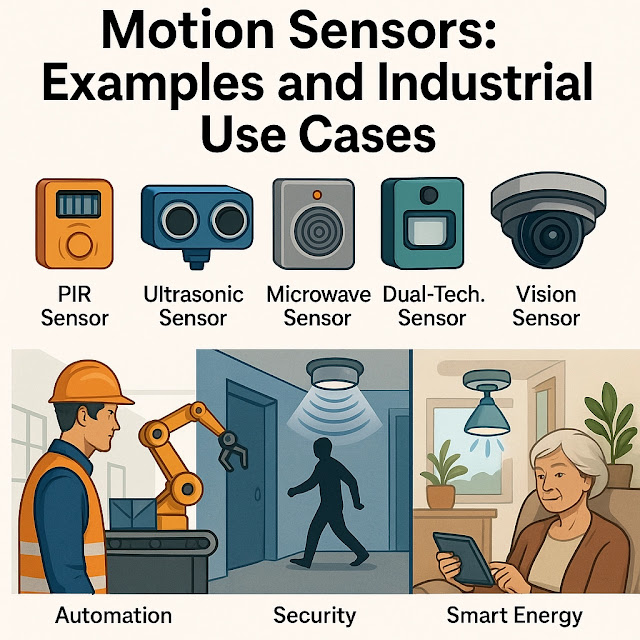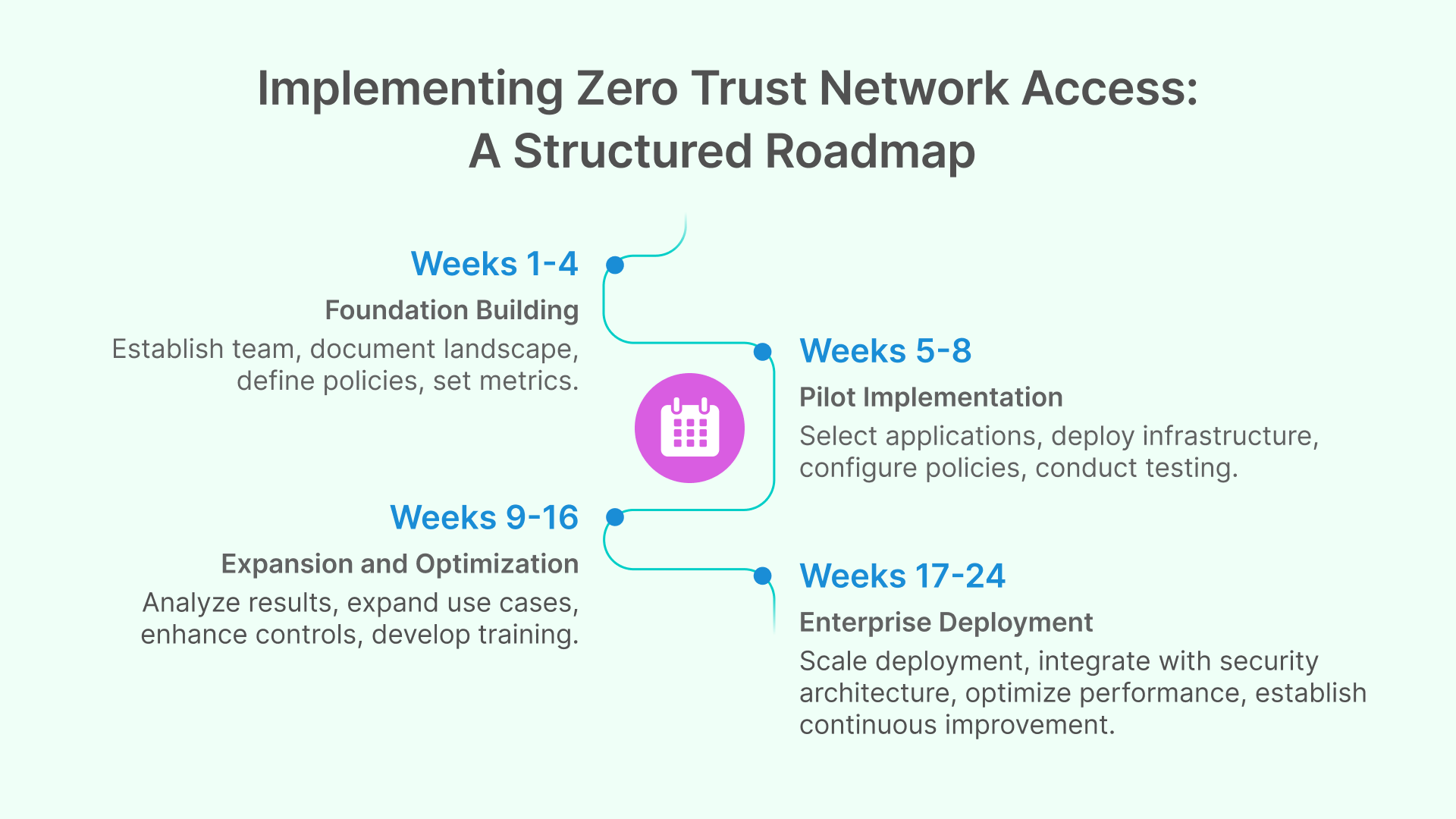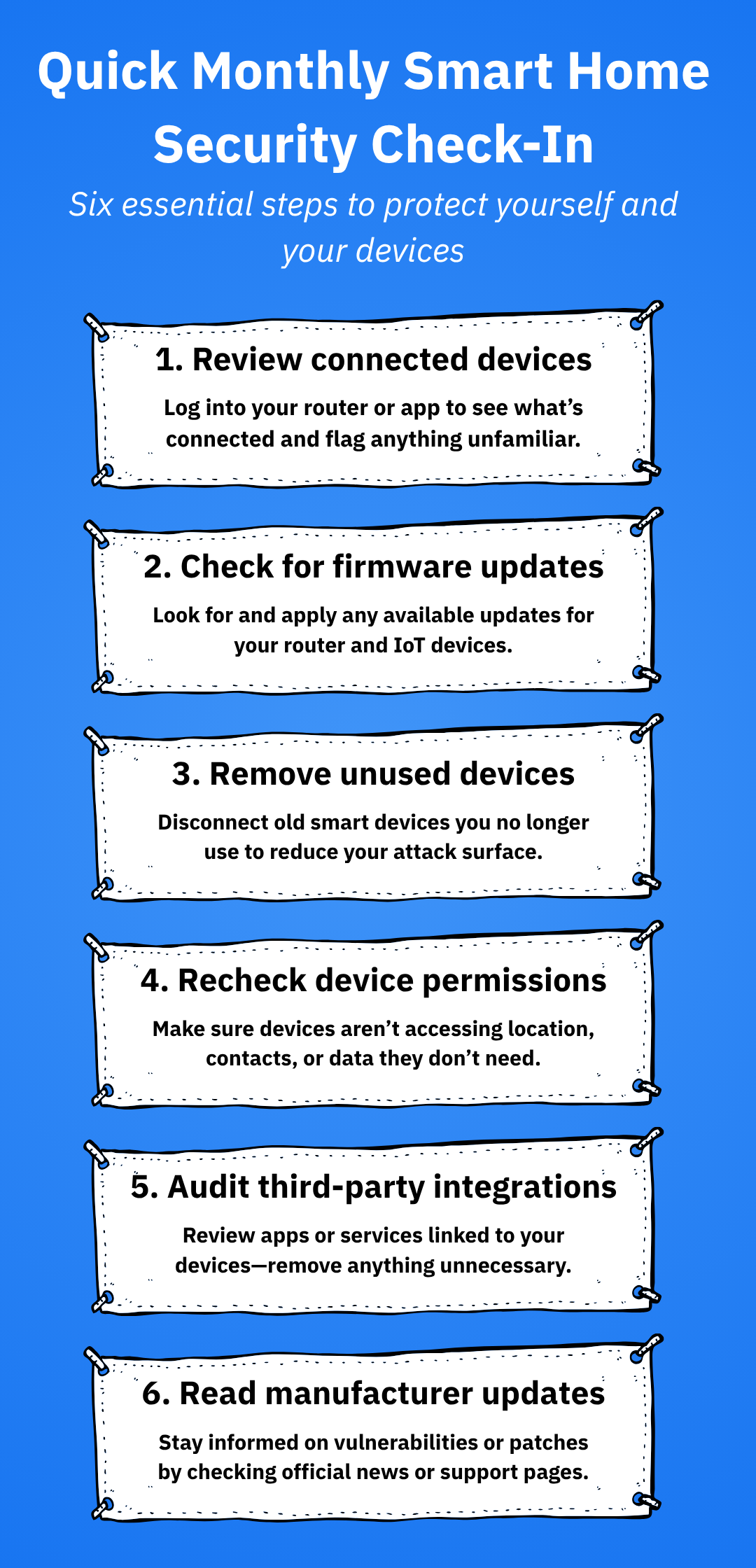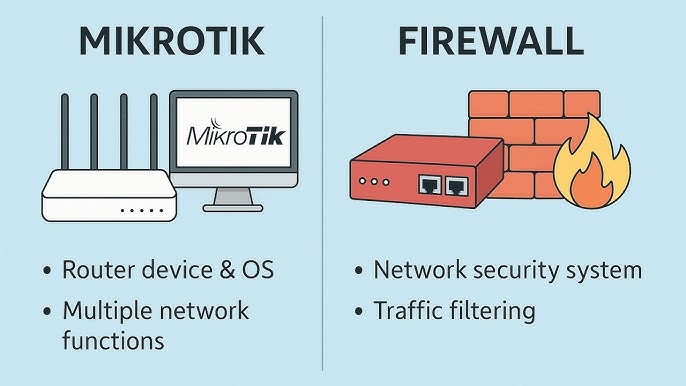Imagine having tools that can sense what’s happening around you and help make smarter decisions instantly. Smart sensors do exactly that—they gather information and turn it into useful actions.
Whether you want to improve your home, boost your business, or stay safer on the road, smart sensors can change the way you live and work. You’ll discover real-life smart sensor use cases that could make your daily routine easier and more efficient.
Ready to see how these tiny devices can have a big impact on your life? Keep reading.
Industrial Automation
Smart sensors play a key role in industrial automation. They help machines and systems work better and faster.
These sensors collect data that machines use to make decisions. This data improves safety, efficiency, and output.
Predictive Maintenance
Smart sensors detect problems before machines break down. They monitor temperature, vibration, and other signs of wear.
Early warnings help schedule repairs at the right time. This reduces downtime and cuts repair costs.
- Measure machine vibrations
- Track temperature changes
- Detect unusual noises
- Alert before failures occur
Quality Control
Smart sensors check products during manufacturing. They find defects and ensure each item meets standards.
These sensors measure size, color, and shape. They help keep quality high and reduce waste.
- Scan for surface defects
- Verify product dimensions
- Check color consistency
- Reject faulty products automatically
Process Optimization
Smart sensors gather data to improve factory processes. They help save energy and increase production speed.
Data from sensors shows where delays or waste happen. Managers use this to adjust machines and steps.
- Monitor energy use
- Track material flow
- Analyze machine performance
- Optimize workflow for faster output

Credit: 1leaptechnologies.com
Healthcare Advancements
Smart sensors improve healthcare by making it easier to watch patients. They help doctors get data quickly and act fast.
These sensors are used in many ways to keep people healthy and safe. They bring new tools to hospitals and homes.
Remote Patient Monitoring
Smart sensors let doctors check patients from far away. This saves time and helps people stay at home.
Patients wear devices that send health data to doctors. This helps catch problems early and reduce hospital visits.
- Track heart rate and blood pressure remotely
- Monitor glucose levels for diabetes patients
- Alert doctors if vital signs change suddenly
Wearable Health Devices
Wearable devices use smart sensors to gather health information all day. They help users understand their body better.
These devices can measure steps, sleep, and stress. They give real-time feedback and encourage healthy habits.
- Fitness trackers monitor activity levels
- Smartwatches measure heart rate and oxygen
- Wearables send alerts for abnormal readings
Smart Diagnostics
Smart sensors improve diagnostic tools by making tests faster and more accurate. They help doctors find illnesses early.
Sensors can detect changes in body fluids or tissues. This leads to quicker treatment and better patient care.
- Detect infections through sensor analysis
- Monitor blood tests with smart devices
- Use sensors to guide imaging and scans
Agriculture Innovation
Smart sensors are changing how farmers grow crops and raise animals. They help collect data to make better decisions.
These sensors improve efficiency and save resources like water and fertilizer on farms.
Precision Farming
Smart sensors help farmers plant seeds and apply fertilizers exactly where needed. This reduces waste and boosts crop yield.
They monitor weather and soil conditions to guide farming tasks in real time.
- Measure soil moisture for irrigation timing
- Detect nutrient levels for fertilizer use
- Track weather changes to protect crops
Soil And Crop Monitoring
Sensors check soil health by measuring pH, moisture, and temperature. This helps keep plants healthy.
Crop sensors detect signs of disease or pest attacks early. Farmers can act quickly to save their plants.
- Soil pH and nutrient sensors
- Moisture sensors for water needs
- Crop health sensors for disease detection
Livestock Management
Smart sensors track animal health and behavior on farms. This helps farmers spot sick animals early.
Sensors also monitor feeding and movement. This improves animal care and farm productivity.
- Wearable sensors for health monitoring
- GPS trackers to follow animal movement
- Automatic feeders controlled by sensors
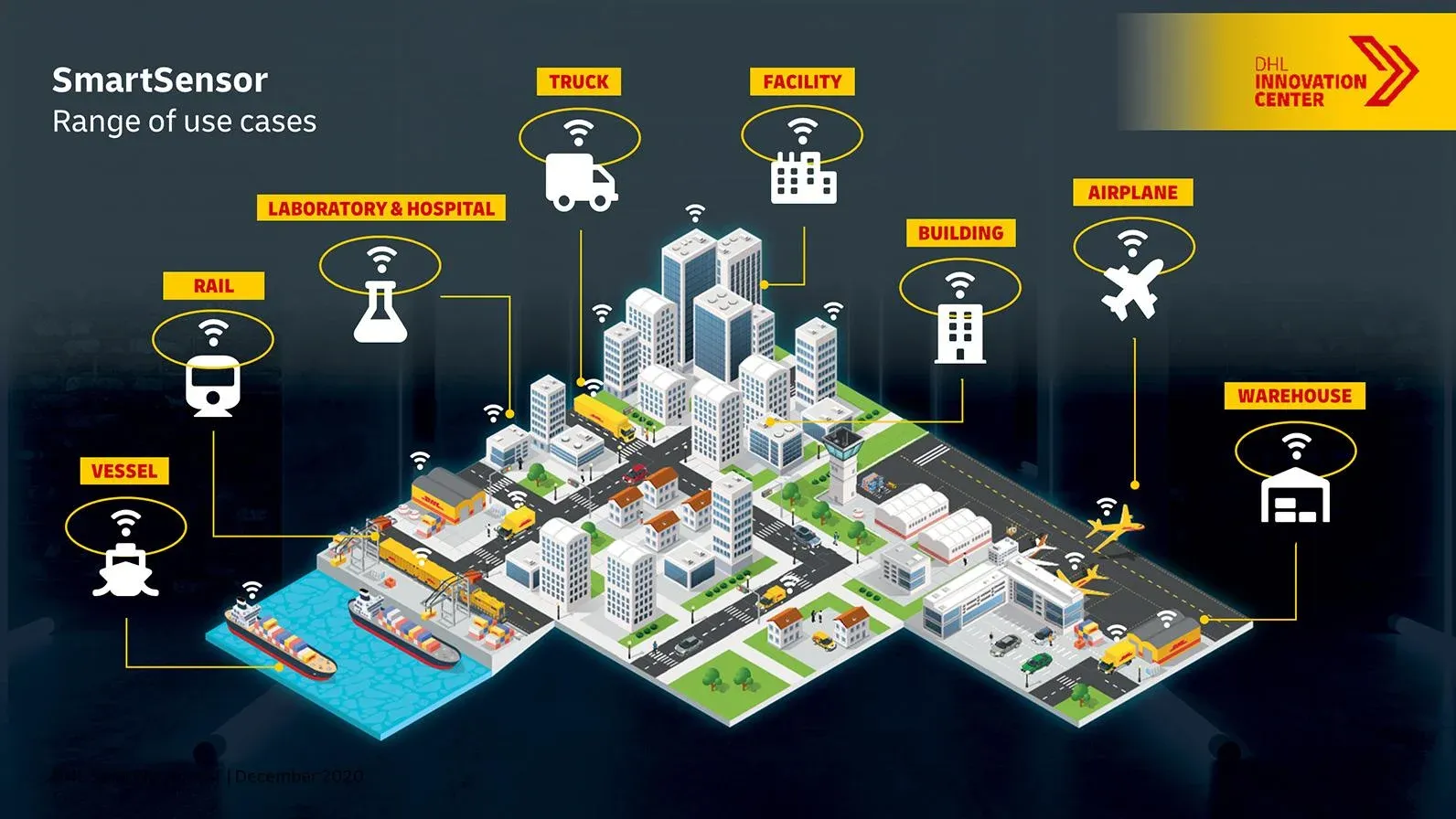
Credit: www.itransition.com
Smart Cities
Smart sensors help cities become safer and cleaner. They collect data from many places.
This data helps city leaders make better choices. Sensors improve daily life for everyone.
Traffic Management
Sensors track cars and buses on the roads. They detect traffic jams and accidents fast.
Traffic lights change based on real-time data. This reduces waiting times and pollution.
- Count vehicles to adjust traffic signals
- Detect accidents to alert emergency teams
- Guide drivers to less busy routes
Environmental Monitoring
Sensors measure air quality and noise levels. They help spot pollution sources quickly.
Data from sensors supports clean air plans. It also helps protect public health.
- Monitor harmful gases like CO2 and NO2
- Track noise pollution in busy areas
- Alert officials when pollution is high
Energy Efficiency
Sensors track energy use in buildings and streetlights. They find waste and suggest savings.
Smart systems turn off lights or appliances when not needed. This lowers city energy bills.
- Detect unused rooms to save electricity
- Control streetlights based on daylight
- Monitor energy use to improve efficiency
Transportation And Logistics
Smart sensors help improve transportation and logistics. They collect data to make operations smoother and safer.
These sensors track vehicles, assets, and conditions in real time. This helps companies save time and reduce costs.
Fleet Management
Smart sensors monitor vehicle health and performance. They alert managers about maintenance needs to avoid breakdowns.
They also track fuel usage and driver behavior. This helps improve fuel efficiency and reduce accidents.
- Track engine status and tire pressure
- Monitor fuel consumption
- Detect speeding or harsh braking
- Schedule preventive maintenance
Asset Tracking
Smart sensors locate shipments and cargo in real time. This reduces the chance of lost or stolen goods.
They also track temperature and humidity. This is important for sensitive items like food and medicine.
- Real-time GPS location tracking
- Monitor environmental conditions
- Send alerts if conditions change
- Improve inventory management
Safety Enhancements
Smart sensors detect road and vehicle conditions. They warn drivers about hazards like slippery roads or engine problems.
They also monitor driver alertness to prevent accidents. This improves overall safety for drivers and cargo.
- Detect dangerous road conditions
- Monitor driver attention and fatigue
- Alert for vehicle malfunctions
- Help avoid accidents and delays

Credit: advanced.onlinelibrary.wiley.com
Consumer Electronics
Smart sensors are common in many consumer electronic devices. They help devices work better and respond to users.
These sensors collect information and allow devices to act quickly and safely.
Smart Home Devices
Smart sensors in home devices help control lights, temperature, and security. They detect motion, light, and temperature changes.
These sensors make homes more comfortable and energy efficient by adjusting settings automatically.
- Motion sensors turn lights on and off
- Temperature sensors adjust heating and cooling
- Smoke and gas sensors alert for danger
- Door and window sensors improve security
Personal Assistants
Personal assistants use smart sensors to understand voice commands and surroundings. They rely on microphones and cameras.
Sensors help assistants recognize users and respond to questions or control other devices.
- Voice sensors detect commands clearly
- Proximity sensors know when users are nearby
- Light sensors adjust screen brightness
Enhanced User Experience
Smart sensors improve how users interact with devices. They make devices easier and safer to use.
These sensors adapt device functions to fit user habits and needs.
- Touch sensors respond to user input quickly
- Gyroscope sensors help control games and apps
- Heart rate sensors support fitness tracking
- Ambient light sensors adjust display settings
Energy Sector
Smart sensors help improve the energy sector by providing real-time data. They monitor systems and detect issues quickly.
These sensors make energy use safer and more efficient. They support better decision-making in power management.
Grid Monitoring
Smart sensors track the condition of power grids continuously. They identify faults before they cause outages.
They measure voltage, current, and temperature to keep the grid stable. This helps prevent blackouts and equipment damage.
- Detects faults early
- Monitors grid load and performance
- Improves response time to problems
Renewable Energy Integration
Smart sensors help connect solar and wind power to the grid. They measure energy output and weather conditions.
These sensors balance energy supply from renewables with demand. They support smooth operation of mixed energy sources.
- Monitors solar panel performance
- Tracks wind turbine status
- Helps manage energy storage systems
Consumption Analytics
Smart sensors collect data on how energy is used in homes and businesses. This data shows patterns and helps reduce waste.
Users get insights to control their energy use. Utilities can plan better by understanding consumption trends.
- Tracks energy use by time and device
- Identifies areas to save energy
- Supports demand response programs
Frequently Asked Questions
What Are Common Smart Sensor Use Cases Today?
Smart sensors are used in healthcare, automotive, and smart homes. They monitor health, improve vehicle safety, and automate home devices efficiently.
How Do Smart Sensors Improve Industrial Automation?
Smart sensors enhance automation by providing real-time data. They optimize production, reduce downtime, and increase operational efficiency in industries.
Can Smart Sensors Enhance Energy Management?
Yes, smart sensors monitor energy usage and detect wastage. They help optimize consumption, reduce costs, and support sustainable energy practices.
What Role Do Smart Sensors Play In Smart Cities?
Smart sensors enable traffic management, pollution control, and public safety. They collect data to improve urban living conditions and infrastructure.
Conclusion
Smart sensors transform industries with various practical applications. From healthcare to agriculture, they offer valuable insights. These sensors improve efficiency and safety in everyday tasks. Businesses can make informed decisions based on real-time data. Smart sensors enhance our lives by simplifying complex processes.
Their use continues to expand across different sectors. Understanding their potential is crucial for future advancements. Embrace the benefits of smart sensor technology today. Stay ahead by exploring these innovative tools. Smart sensors are shaping the future of technology and industry.
16 min read

